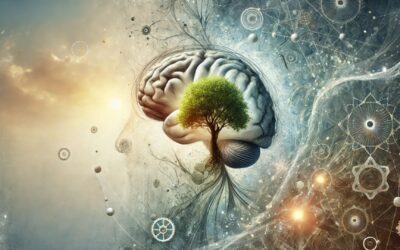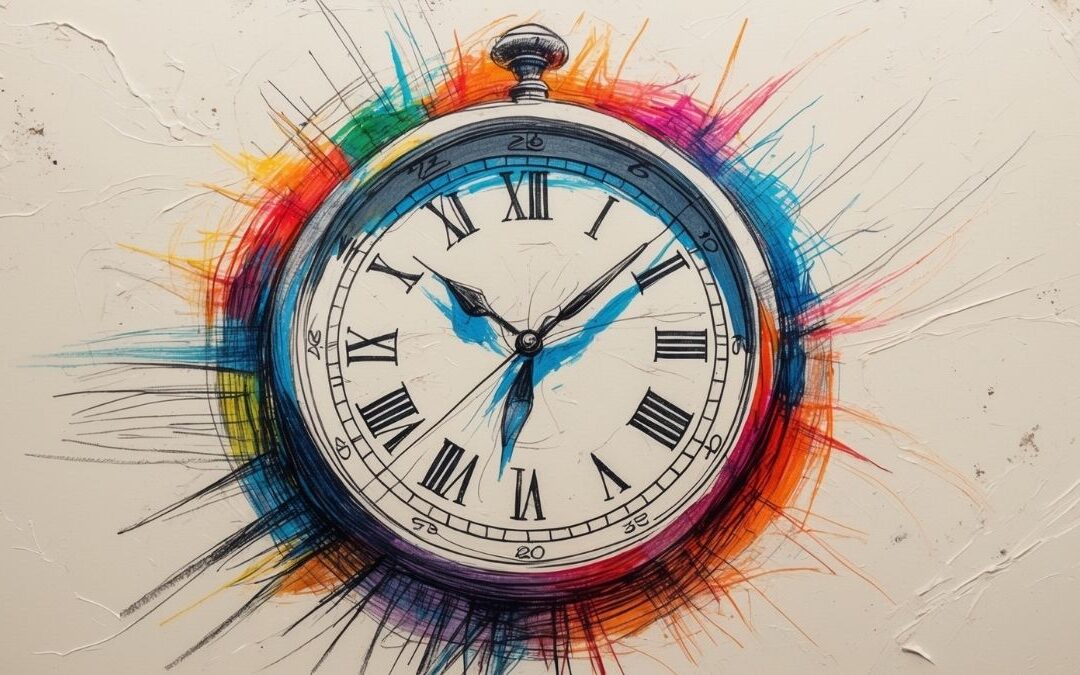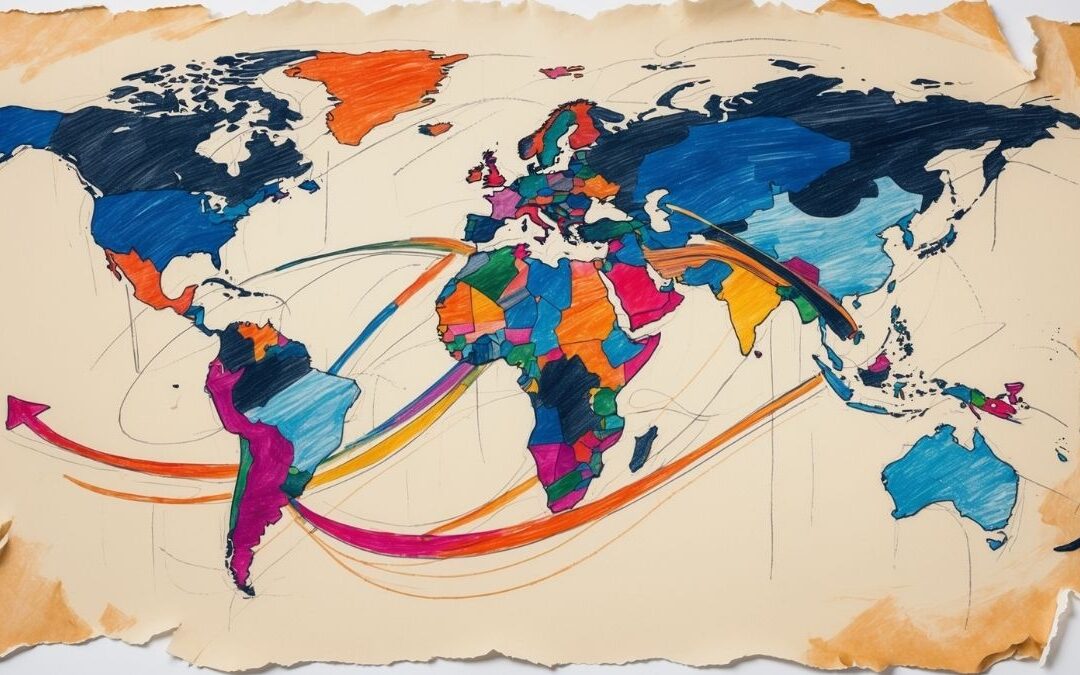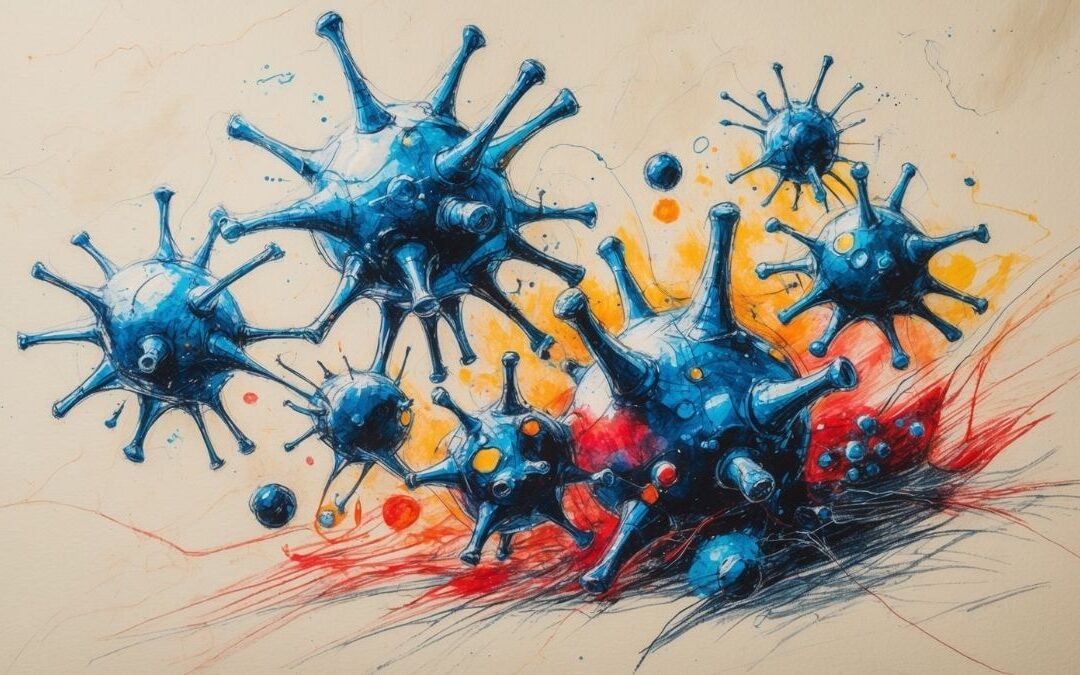Podcast Audio
Episode Transcript
Words of Wisdom
Daily Proverb: Absence makes the heart grow fonder.
Have you ever missed someone so much it ached? Does distance make your feelings for a person intensify, or does it create a space for doubt and disconnection to creep in? Is there any truth to the age-old saying, “Absence makes the heart grow fonder”? Does love actually get stronger with time apart?
Welcome to Daily Proverb, where we dig into the meanings behind those familiar phrases you’ve heard all your life. Today we’re tackling a proverb all about that bittersweet ache of longing: “Absence makes the heart grow fonder.”
So, let’s unpack this idea. On one hand, there’s something romantic about the notion that distance can fuel desire. When we’re temporarily away from someone we care about, we might focus on their best qualities, idealizing them a little bit. It might renew our appreciation for the little things we might otherwise take for granted.
Studies show that couples in long-distance relationships sometimes report high levels of satisfaction and intimacy – possibly because they make the most of the time they do have together.
But here’s the flip side: Can too much absence be a bad thing? Prolonged separation can absolutely strain relationships. Miscommunication, lack of physical touch, and feeling out of sync with your partner’s life can gradually erode even the strongest bonds.
Here are a few things to consider:
- The Reason for the Absence: Is this a planned, mutually agreed upon separation like a job deployment, or is it an unplanned separation due to circumstances beyond your control? The reason behind the distance plays a big role.
- Communication is Key: Are you and your absent loved one making an effort to stay connected? Honest talks, shared experiences (even virtually), and keeping those emotional channels open are crucial when dealing with physical distance.
- Individual Needs: Some thrive with independence, while others crave constant reassurance. Understanding your own attachment style and those of your loved one is crucial.
Remember, “absence makes the heart grow fonder” might be true sometimes, but it’s no substitute for open communication, nurturing your connection, and making the most of the time you do have together.
Daily Quote: To be yourself in a world that is constantly trying to make you something else is the greatest accomplishment. – Ralph Waldo Emerson
Picture this: You’re at a huge party. Everyone seems to know their place, their role, their “thing.” There’s pressure to fit in, to adopt a persona that seems more acceptable or successful. But…what if the very best version of you is the one that feels most authentic? What if bucking the trend and being truly yourself is actually the path to something great?
Welcome to Daily Quote, the podcast that delves into a single thought-provoking idea each day. Today, we’re exploring a gem of wisdom from Ralph Waldo Emerson that might just give you the courage to let your own true colors shine.
Emerson said, “To be yourself in a world that is constantly trying to make you something else is the greatest accomplishment.”
Wow, there’s so much to unpack here! Let’s break it down…
- The Pressure to Conform: Society, intentionally or not, throws a ton of “shoulds” our way. We’re bombarded with images of how we should look, what we should achieve, how we should think. It can feel like there’s a mold to squeeze ourselves into.
- The Power of Authenticity: Emerson challenges this head-on! Being your genuine self – flaws, quirks, and all – takes remarkable courage. But it’s also where fulfillment often lies. Think of people you admire. Don’t their unique personalities shine through their work, relationships, or impact?
- What is “Accomplishment” Anyway? This quote turns our usual idea of accomplishment on its head. Success isn’t just about external benchmarks; it’s deeply tied to staying true to yourself, even when that’s hard.
Think of it this way: Imagine two artists. One paints what they think will sell, the other paints from the depths of their soul. Who’s achieved more, even if the world doesn’t instantly recognize it?
Word Power
Daily Expression: Run to ground.
Imagine being a detective hot on the trail of a mystery. You’ve got clues, you’re following leads, and the pieces are starting to fall into place. But, what if that trail suddenly goes cold? The clues dry up, and your suspect seems to vanish. That’s the idea behind the phrase “run to ground.” But do we mean someone literally ran into a hole in the ground like an animal? Let’s investigate!
Welcome to English Express, where we dig into the quirky and fascinating world of English idioms! Today, we’re unraveling the mystery of the phrase “run to ground.”
Picture this: a hunter with their dogs chasing a fox. The scent is strong, the chase is thrilling, and then…the fox disappears into its burrow. That’s where our idiom comes from! To “run to ground” doesn’t actually involve burrowing in the dirt. It means to track down or locate something or someone – often after a long, intensive search.
Here’s how you might hear this used:
- “The detectives worked tirelessly to run the criminals to ground.”
- “After weeks of research, I finally ran to ground that rare historical document.”
- “Don’t worry, we’ll run to ground the source of that strange noise.”
There’s also a sense of uncovering something, bringing it into the open. For example:
- “The investigative journalists ran to ground the corruption scandal.”
Word of the Day: Commensurate
Imagine you put in an incredible amount of effort on a project, and you’re rewarded… with a pat on the back. Does that feel fair? Is there a word that describes when rewards, punishments, or consequences are in proportion to the actions that caused them? Indeed there is, and it’s a word that holds a key to fairness and balance.
Welcome to Word of the Day! Today we’re delving into the world of “commensurate”. Get ready to add a powerful new tool to your vocabulary toolbox!
“Commensurate” might sound a bit formal, but its meaning is incredibly useful. It essentially means “in proportion to” or “corresponding in size or degree.” Here’s where it gets interesting:
- Fairness and Compensation: Your salary should be commensurate with your experience and workload. Meaning, the harder you work, the better your pay should be – that’s fair!
- Consequences: If a crime is severe, the punishment should be commensurate, serving as a strong deterrent. There’s a sense of things being in balance.
- Effort and Results: “The success of the project was commensurate with the team’s hard work.” This means the outcome matched the level of effort put in.
“Commensurate” comes from the Latin prefix “com-” (meaning “with”) and the word “mensurare” (meaning “to measure”). So, it’s literally about things being measured together or fitting an appropriate scale.
Let’s see how this word gets used:
- “They were finally offered a price commensurate with the value of their house.”
- “His arrogance was far from commensurate with his actual abilities.”
- “In an ideal world, effort and reward should always be commensurate.”
Doesn’t the world feel a little more balanced after learning “commensurate”?
Did You Know?
Medicine: Did you know the human liver can regenerate itself?
Imagine an organ that can bounce back from serious damage. Picture it healing itself, even after losing a significant chunk of its tissue. Sounds like something out of a sci-fi movie, right? But believe it or not, this regenerative power exists inside your very own body. Get ready to meet the star of this astonishing tale of self-healing: your liver!
Welcome to the “Did You Know” podcast, where we feed your curiosity with weird and wonderful facts about the world around us. Today, we’re taking a mind-bending journey into the world of medicine and the incredible abilities of the human liver.
The liver has a reputation for being a workhorse. It filters toxins, produces essential proteins, helps with digestion… the list goes on! But there’s one more trick up its sleeve that makes it truly extraordinary: regeneration.
Unlike other organs, the liver can regrow to its original size even after a substantial portion is removed. We’re talking up to 70% removal here! How does it do this? Think of liver cells being like those team players that can step into any position on the field. When part of the liver is damaged, healthy cells get the signal to start multiplying, replacing lost tissue and restoring the liver to its former glory.
Scientists are still unpacking all the secrets behind this remarkable feat, but it’s a game-changer. Transplant surgeons can take advantage of this, performing life-saving transplants using just a portion of a healthy donor liver. Plus, researchers dream of harnessing this power to regrow damaged livers without the need for transplants altogether.
Know Yourself: Did you know that gut bacteria might influence your mood and thoughts?
Could the secret to a happier mind lie in your gut? Discover the surprising link between gut bacteria, mood, and mental well-being on this episode of ‘Know Yourself’.
Imagine tiny creatures living inside of you, trillions of them, with the power to influence your mood… even your thoughts! Sounds strange, right? But are we in control of our minds, or might our gut bacteria be calling some of the shots? Buckle in, because today on ‘Know Yourself’, we’re venturing into the surprising world of your gut microbiome and its connection to your mental well-being!
Get ready to think about your gut in a whole new light. For years, we’ve focused on the gut’s role in digestion. But groundbreaking research reveals a bustling metropolis of bacteria in your belly, and these microbes could be key players in how you feel both physically and mentally.
Scientists call it the gut-brain axis. Turns out, your gut and brain are constantly chatting. Gut bacteria produce chemicals that travel to your brain, and vice-versa. These bacteria might influence the production of mood-altering substances like serotonin and dopamine – the chemicals often targeted by antidepressant medications.
The research is still evolving, but the link is strong. Studies suggest that imbalances in gut bacteria may be connected to anxiety, depression, and other mental health conditions.
The good news? You might be able to boost your mood by boosting your gut health! Eating a diverse diet rich in probiotics (live bacteria found in foods like yogurt) and prebiotics (fiber that feeds the good bacteria) could help.
So the next time you think about boosting your mood, don’t forget about your gut. This exciting mind-body connection could lead to new ways of understanding, and even improving, our mental well-being.
Language Journey
English Usage Daily: Moral, Morality and Morale
Should you follow your own internal moral compass, or the broader rules of societal morality? Can a single act boost the team’s morale, even if it seems slightly against the moral code? Words like “moral”, “morality”, and “morale” float around us, but do we truly understand the shades of meaning that separate them?
Hey grammar enthusiasts, and welcome back to English Usage Daily! Today, we’re sorting out a trio of words that sound alike but hold distinct powers – “moral”, “morality”, and “morale”. Get ready, because we’re about to untangle them and put you in charge of using them right!
Let’s begin with “moral.” At its core, “moral” is an adjective describing what’s considered right or wrong, good or bad, especially in terms of behavior and character. When you think of “moral choices” or a person having a “strong moral code,” this is the word in action.
Next up is “morality.” This is a noun that refers to those broader principles of right and wrong. Think of it as a system of values that can guide a person or an entire society. Debates about “morality in politics” or the “changing morality of a generation” use the term in this way.
Now, here’s where it gets a little funky. “Morale” is a noun, but it’s a world away from ethics and right or wrong. Instead, “morale” is all about your state of mind. It refers to your levels of enthusiasm, confidence, and determination, especially within a group. When your favorite sports team is on a losing streak, their morale likely plummets. But a single big win can miraculously boost their morale.
Here’s a quick recap:
- Moral: Describes what’s right or wrong
- Morality: The system of principles guiding right and wrong
- Morale: Your state of mind, enthusiasm, and determination
Can something be legal but not moral? Can boosting morale involve bending the rules a bit? This week, pay attention to how you see these three words used. Are they being used correctly? And do you agree with the way that morality and morale are intertwined?
Until next time, fellow word warriors, keep exploring!
Common Mistakes in English using Provide
Are you always second-guessing whether you should say “provide with” or “provide to”? Do you hesitate while writing reports, fearing your “provides” might be wrong? Have you ever wondered if just plain “provide” can do the trick?
Well, buckle up! Welcome to Daily Common Mistake, where we uncover the secrets behind those pesky words that cause us doubt and give them a good grammar makeover!
Today, we’re tackling the prickly word “provide”. On the surface, it seems straightforward – giving something, right? But here’s the twist: it loves to play grammatical games with little words like “to”, “with”, and sometimes, it likes to party solo!
Let’s break down the most common scenarios:
- Provide + Object + TO This is when you’re giving something directly to a person or thing.
- “The company provides health insurance to its employees.”
- “I’ll provide the snacks to the picnic.”
- Provide + Object + WITH This is when you equip someone or something with a resource or tool.
- “The library provides visitors with free Wi-Fi.”
- “Please provide me with the necessary materials.”
- Provide (on its own) Sometimes, “provide” flies solo if the context is crystal clear.
- “We will provide assistance as needed.” (We know what we’re offering)
The biggest mistake is mixing up “with” and “to”. Remember – “to” is for direct giving, “with” is for equipping!
The next time you reach for the word “provide”, pause for a second. Are you directly handing something over, or offering a resource? Knowing this will guide your choice.
And if you’re still in doubt, try rephrasing the sentence slightly. Sometimes, a quick word swap reveals whether you need “with”, “to”, or maybe just simple, direct “provide”.
Literary Echoes
Poetry daily: from Adonais by Percy Bysshe Shelley
What if everything we perceive as reality is merely a dream from which we’re yet to awaken? Can the end of physical existence be the beginning of true awakening? In today’s episode of Daily Poem, we delve into the ethereal realm of Percy Bysshe Shelley’s “Adonais,” focusing on a stanza that challenges our understanding of life and death, urging us to look beyond the tangible.
Welcome, poetry enthusiasts, to a journey through the transcendent verses of Shelley, where we explore the profound notion that perhaps, in death, we awaken from the dream of life.
In the elegy “Adonais,” Shelley mourns the loss of a fellow poet, yet in the process, he offers a transformative view of death and existence. The stanza we’re focusing on today speaks volumes about Shelley’s philosophical inquiries:
“Peace, peace! he is not dead, he doth not sleep,
He hath awaken’d from the dream of life;
‘Tis we, who lost in stormy visions, keep
With phantoms an unprofitable strife,
And in mad trance, strike with our spirit’s knife
Invulnerable nothings. We decay
Like corpses in a charnel; fear and grief
Convulse us and consume us day by day,
And cold hopes swarm like worms within our living clay.”
Shelley posits that the one who has passed away is not dead but has awakened from the life that we, the living, perceive as reality. This idea mirrors concepts found in various philosophical and spiritual traditions, suggesting that what we experience as life is but a shadow of a greater existence.
The “stormy visions” and “phantoms” represent our daily struggles and conflicts—unprofitable and futile against the backdrop of the universe’s vastness. Shelley uses vivid imagery to depict how, engulfed in our ephemeral desires and fears, we are no more alive than corpses, our spirits beleaguered by “cold hopes” that gnaw at us from within.
Through this powerful imagery, Shelley invites us to question the nature of reality itself. Are we merely fighting “invulnerable nothings,” shadowboxing with illusions born of our own fears and desires? The stanza reflects a profound disillusionment with the material world, suggesting a yearning for a more profound, awakened state of being.
Shelley’s “Adonais” transcends a mere lamentation for a lost friend; it becomes a meditation on the nature of existence, prompting us to consider if death might indeed be an awakening from the dream of life. As we reflect on this stanza, let’s ponder the illusions that bind us, the phantoms we chase.
What does it mean to awaken from the dream of life? And how can we navigate our existence to find peace in the understanding that perhaps, in what we call death, there lies a deeper awakening?
Thank you for joining me on Daily Poem, where we explore the depths of human experience through the lens of poetry. May today’s discussion inspire you to look beyond the ephemeral and seek the eternal in the everyday.
Until next time, may your days be filled with poetry and your life with awakening.
Spotlights Daily: What is the difference between healthy and unhealthy love?
Think about the times you’ve been head over heels, butterflies-in-your-stomach in love. Was it real? Does love always feel that intense? Or, is there a darker side to those all-consuming feelings that we mistake for passion? What if the love you think is the stuff of fairytales is actually something else? Something…unhealthy.
Welcome to Daily Spotlight, the show where we dig into the big questions that shape our world – and our relationships. Today, we’re delving into a topic that touches us all: love. But not just any love – we’re exploring the murky line between healthy love and the kind that can become…well, dangerous. Let’s get started.
Love is beautiful. It’s inspiring. But what happens when those warm, fuzzy feelings transform into something else? Maybe it’s that possessiveness that feels romantic at first, a sign of how much they care. Or that jealousy that’s disguised as being protective. Or, those moments of anger that you excuse because, well, they just love you so much.
That’s the scary thing about unhealthy love. It often starts off feeling like the real deal. But real, healthy love is about respect, trust, and freedom to be yourself within your relationship. Unhealthy love is different. It’s about control, manipulation, and isolating you from friends and family. Maybe it’s intense emotional swings, walking on eggshells because you’re never sure how they’ll react.
This isn’t just about extreme cases you see in the news. Unhealthy patterns can be subtle. Have you ever found yourself changing who you are to please your partner? Feeling cut off from the people you were close to? Excusing red flags because you cling to the good times?
Recognizing unhealthy dynamics is the first step to breaking free. But what if that person truly believes they love you? Can unhealthy love transform into something healthy, or is it time to walk away?
Here’s what I want you to think about after today’s show: Love should make you feel good about yourself…most of the time. Everyone experiences conflict, but love shouldn’t be consistently draining, scary, or make you become someone you don’t recognize. If your gut tells you something isn’t right, trust that feeling. There are resources and support available for anyone struggling with unhealthy relationships. You deserve love that is mutual, respectful, and truly brings the best out of you.
Magazine Spotlights:
The Wrath of Achilles
Throughout human history, myths and legends have acted as the strands that bind us to our past, creating narratives that deeply resonate with our shared humanity. Among these ancient narratives, the story of Achilles’ wrath in the Trojan War stands as a testament to the complexities of anger, pride, and the quest for glory. As we delve into this epic tale, we find not only a story of gods and heroes but also timeless lessons that mirror our own struggles and aspirations.
The tale begins in the midst of the Trojan War, a conflict that has raged for years, drawing in heroes and gods alike in a battle that would be remembered for ages. Achilles, the greatest warrior of the Greeks, becomes embroiled in a dispute that sees his honor challenged by Agamemnon, the leader of the Greek forces. When Agamemnon demands Achilles’ war prize, Briseis, as compensation for his own loss, Achilles’ pride is wounded. In his fury, Achilles withdraws from the battle, declaring that he will not fight until his honor is restored.
The wrath of Achilles sets off a chain of events that alters the course of the war. Without their most formidable warrior, the Greeks suffer great losses, pushing them to the brink of defeat. The story unfolds with a mix of divine intervention, heroic deeds, and tragic fates, culminating in Achilles’ return to battle following the death of his close friend Patroclus, who falls at the hands of Hector, the Trojan prince. Fueled by grief and a renewed sense of vengeance, Achilles’ wrath becomes his driving force, leading to a confrontation that would echo through history.
The narrative of Achilles’ rage, and the devastation it brings, serves as a powerful reflection on the nature of anger and its impact on human relationships. It reminds us that unchecked anger can lead not only to personal downfall but also to the suffering of those around us. The epic’s resolution, with Achilles finally relenting and returning Hector’s body to his grieving father, King Priam, highlights the potential for reconciliation and understanding even in the darkest of times.
This ancient story resonates with contemporary life in many ways. It invites us to consider our own moments of anger and pride, urging us to reflect on how we manage these emotions and their consequences. In a world where conflicts, both personal and global, often stem from similar feelings of slighted honor or unmet expectations, the Wrath of Achilles prompts us to search for ways to bridge divides and heal wounds.
As we reflect on the lessons from Achilles’ story, we find that the true battle lies within. It’s a battle to overcome our own egos, to listen, and to seek common ground even with those we consider our adversaries. The myth teaches us the value of empathy and the importance of understanding the stories of others, as well as our own.
In embracing these lessons, we can strive to mitigate our own moments of wrath, working towards resolution and peace in our interactions. Let the tale of Achilles inspire you to reflect on your own challenges and how you respond to them. Consider how empathy and understanding can transform your relationships and conflicts, bringing about a more harmonious existence.
As you navigate the complexities of life, remember the echoes of Olympus, where gods and mortals alike grappled with the same emotions and dilemmas that confront us today. Let the ancient stories guide you, not as distant myths, but as living narratives that continue to shape our understanding of the human condition.
So, take action. Reflect on your own moments of anger and pride. Seek understanding and reconciliation where there is conflict. Let the story of Achilles’ wrath and its resolution inspire you to find balance and harmony in your own life, proving that the wisdom of the past can indeed illuminate the path forward.
Environmental Racism and its effects on marginalized communities
Environmental Racism: A Hidden Form of Injustice
Imagine living next to a sprawling landfill, the noxious fumes choking the air. Or, having your community’s only source of drinking water contaminated by industrial waste. Sadly, these scenarios aren’t fiction – they’re the reality for countless marginalized communities across the globe. This is environmental racism in action.
Environmental racism refers to the intentional or systemic practices that place people of color, low-income communities, and indigenous groups at a disproportionate risk from pollution and environmental hazards. This injustice often lurks in plain sight: polluting factories are built in poor neighborhoods, waste dumps are located near reservations, and infrastructure crumbles in areas where minority groups reside.
Why Environmental Racism Matters
Environmental racism isn’t just about aesthetics; it’s a matter of life and death. Think of “Cancer Alley” in Louisiana, a stretch of land along the Mississippi notorious for its high concentration of petrochemical plants that has led to staggering rates of cancer in predominantly Black communities. Or consider the devastating impacts of lead poisoning on children in Flint, Michigan, a public health crisis largely tied to the city’s aging water infrastructure.
The consequences of environmental racism are far-reaching:
- Health Disparities: Exposure to toxic chemicals increases the risk of cancer, asthma, respiratory illnesses, developmental disorders, and a host of other health problems.
- Economic Hardship: Contaminated communities become less desirable places to live, reducing property values and hindering economic growth for residents.
- Erosion of Community: Pollution and health hazards can force people to flee their homes, breaking down social networks and community fabric.
The Roots of Environmental Racism
This form of injustice didn’t occur by accident. Historical systems of discrimination and segregation played a major role. Redlining practices in the past steered marginalized groups into less desirable areas—often near polluting industries or hazardous waste sites. Even today, these communities may lack the political and economic power to advocate for themselves or resist detrimental development projects.
What Can You Do?
Fighting for environmental justice is everyone’s responsibility. Here’s how you can make a difference:
- Educate Yourself: Explore resources like documentaries, news articles, and websites of environmental justice organizations to deepen your understanding of the issue.
- Support Grassroots Movements: Donate to local groups fighting for environmental justice in affected communities. Volunteer your time or skills.
- Demand Action: Contact your elected officials and push for policies that protect vulnerable communities and prioritize sustainable practices.
Remember: The fight for environmental justice is also a fight for the health and well-being of our planet. By standing against environmental racism, we work towards a future where everyone can breathe clean air, drink clean water, and thrive in a healthy environment, regardless of their race or income.










0 Comments